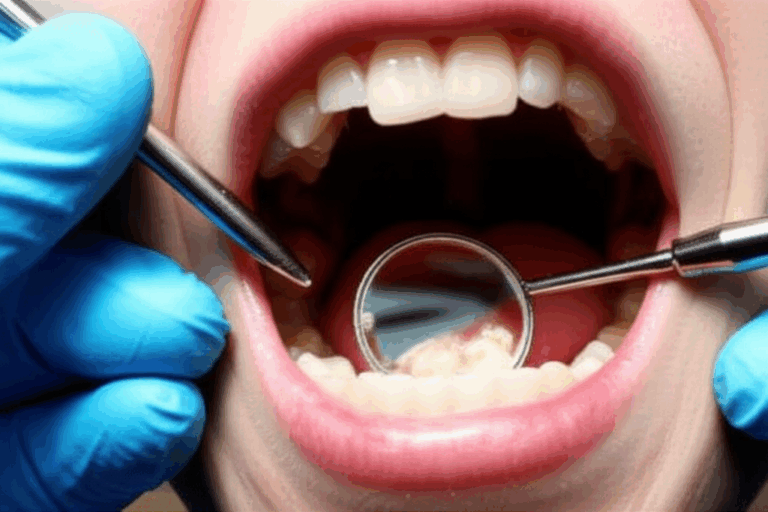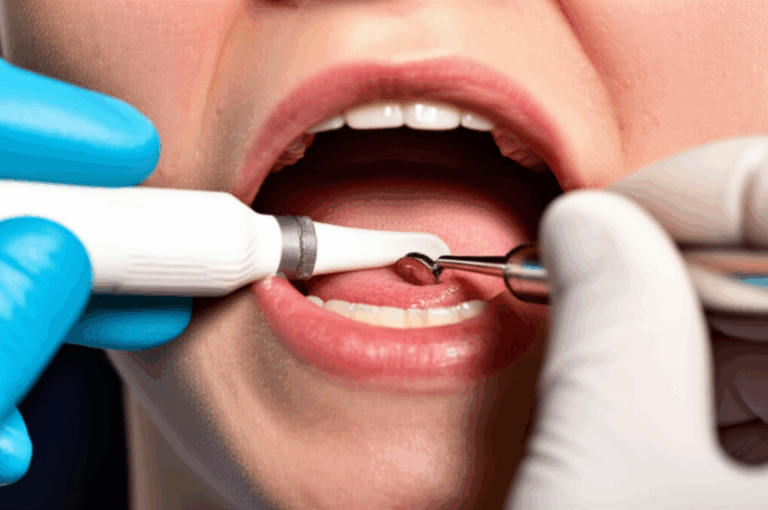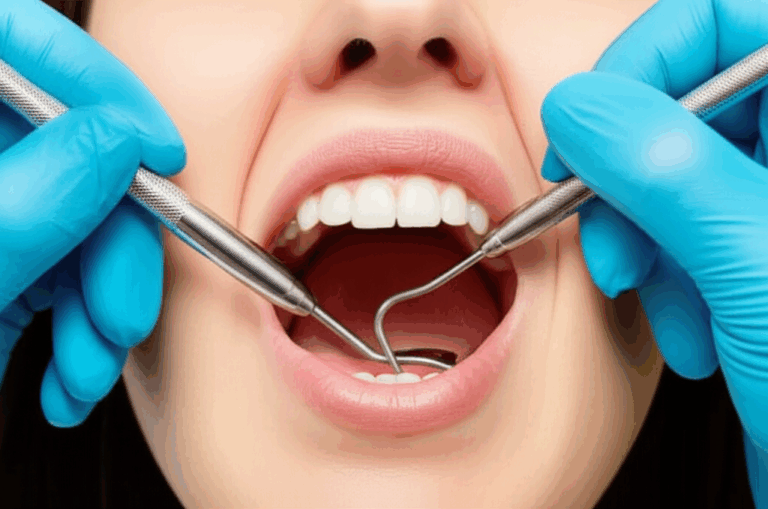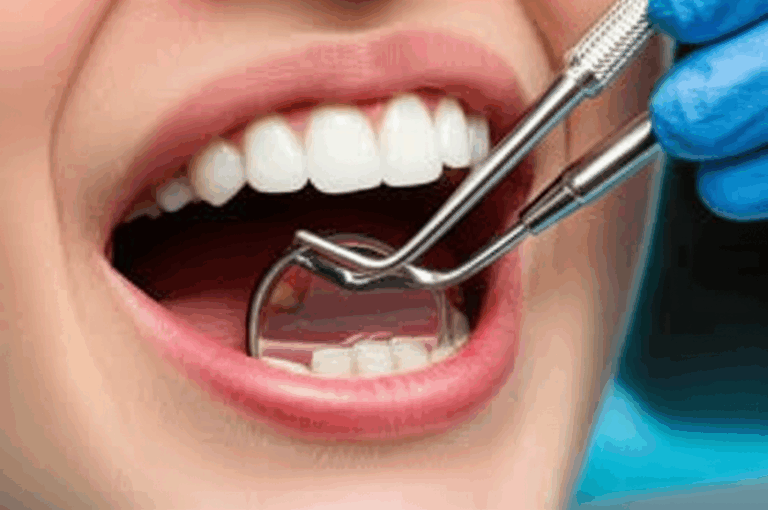
What is the Average Salary of a Dentist in 2024? Your Complete Guide to Dentist Earnings
Have you ever wondered how much dentists really make every year? Maybe you want to become a dentist, are thinking about the cost of dental school, or just wonder where all those checkup and cleaning fees go. If you want a clear answer, based on facts and explained simply, you’re in the right place.
With healthcare changing fast, it’s important to make smart career and money choices. The average salary for a dentist in the U.S. is now between $170,000 and $200,000 a year. That’s good money but, as you’ll see, the number can go much higher or lower depending on specialty, location, experience, and even business skills.
We’ll break it all down: How much do dentists earn, who gets paid the most, how experience changes your income, and—is it all worth the years in school and student loans? Let’s get started.
In This Article
- National Average Dentist Salary Overview
- Dentist Salary by Specialty: Who Earns the Most?
- Geographic Impact: Dentist Salary by State and Region
- How Experience and Practice Type Influence Dentist Income
- Key Factors Affecting a Dentist’s Salary
- Dentist Salary Outlook and Career Trends
- Is Becoming a Dentist Worth It Financially?
- Conclusion: Your Key Takeaways
National Average Dentist Salary Overview
Here’s the big question: What does the average dentist actually make?
According to the Bureau of Labor Statistics and the American Dental Association’s latest reports, dentists in the United States make a middle salary between $170,000 and $200,000 a year. Usually, pay is between $120,000 and $250,000, but top experts and owners of busy practices can make a lot more—sometimes over $400,000.
Median vs. Average Salary:
- Median salary: The number in the exact middle, where half of dentists make more and half make less.
- Average salary: The usual average, which can look higher if a few dentists make much more than others.
People might ask, “Why not just use one number?” Well, there’s a reason: dentistry isn’t the same for everyone. Pay changes a lot depending on what type of dentist you are and where you work.
Quick Stat Box:
- Median general dentist salary: about $180,000
- 90th percentile (top 10%): $280,000 – $350,000+
- Entry-level (first 2 years): $100,000 – $150,000
- Experienced (5+ years): $180,000 – $250,000+
These numbers set the stage—but they don’t tell the whole story.
Dentist Salary by Specialty: Who Earns the Most?
Not all dentists make the same amount. Dentistry covers everything from simple cleanings to tough surgeries. So who makes the most? Here’s the breakdown:
General Dentists
- Average Salary: $160,000 – $190,000
- Range: $110,000 – $230,000
General dentists do most of the common work like fillings, crowns, and patient advice. The more patients they see and if they add extra treatments, their pay can go up fast. If you own your own clinic or offer cosmetic services, you can earn even more.
Orthodontists
- Average Salary: $220,000 – $280,000
- Range: $180,000 – $350,000+
Orthodontists help straighten teeth with braces and clear aligners. They go through extra training, but it pays off. There’s strong demand for this, and many have long waiting lists. The cost of these treatments is higher, so incomes go up.
Oral and Maxillofacial Surgeons
- Average Salary: $280,000 – $350,000+
- Range: $200,000 – $450,000+
These dentists do the most complicated jobs, like taking out wisdom teeth or fixing jaws. The training is long, but their skills mean they get the highest pay in dentistry.
Pediatric Dentists
- Average Salary: $190,000 – $240,000
- Range: $150,000 – $300,000
Pediatric dentists take care of kids’ teeth. They are always needed since parents want the best for their kids.
Other Dental Specialists
- Endodontists: $200,000 – $250,000 (root canals)
- Periodontists: $190,000 – $240,000 (gum issues and implants)
- Prosthodontists: $180,000 – $230,000 (crowns, bridges, dentures)
Every specialty means more school, but leads to focused work that can pay more—especially if you focus on popular treatments like implants or makeovers.
Geographic Impact: Dentist Salary by State and Region
You might think dentists get paid the same everywhere, but where you work matters a lot.
Top-Paying States for Dentists
Places like Delaware, Alaska, California, New Hampshire, and North Dakota often pay the most—$220,000 – $280,000+ for experienced dentists.
Why the big paychecks?
- High costs of living (like California or Alaska)
- Not many dentists (so more people need you)
- Higher payments from insurance or private patients
States with Lower Average Dentist Salaries
States like West Virginia, Kentucky, Mississippi, and Arkansas pay less—usually $100,000 – $150,000.
Why lower pay?
- Lower living costs (so patients pay less, too)
- More dentists per person, so more competition
- More government insurance, which pays less
Urban vs. Rural Earnings
This might surprise you. Sometimes rural areas pay more to get dentists to move there, since most people want to stay in the city. City dentists might see more patients, but their costs are higher too.
Key takeaway: If you’re willing to move, you could make more money in a place where dentists hardly ever go—and sometimes get loan help too!
How Experience and Practice Type Influence Dentist Income
Not all dental jobs are the same. How much you make depends on what you do and how you do it.
Entry-Level / New Grad Dentist Salary
- Typical Starting Salary: $100,000 – $150,000
- Range: $80,000 – $180,000
Right after school, most dentists start as employees, earning less until they build up skills and a group of patients. Some starting jobs, like residencies, pay even less. But don’t worry—money goes up quickly as you get better at the job.
Mid-Career and Experienced Dentists
After a few years, your income jumps. 5-10 years in, most dentists earn $180,000 – $250,000+. If you own your practice, you can make the most. Data shows practice owners have the highest average income in dentistry.
Dentist Salary by Practice Setting
- Private Practice Owner: Can earn the highest ($200,000 – $400,000+), but you also pay the bills and run the business. The better you run it, the more you keep.
- Associate Dentist: Usually a steady salary or pay based on how many patients you see ($130,000 – $200,000). Less stress, but also less money.
- Corporate Dentistry (DSO): Offers predictable pay and benefits ($150,000 – $220,000). You don’t have to run the business, and can earn bonuses if you see more patients.
- Government/Public Health Dentists: Safest hours and good benefits ($100,000 – $150,000), but often the lowest overall pay.
It’s kind of like picking a car—some want speed, some want comfort.
Key Factors Affecting a Dentist’s Salary
Why do two dentists, both working just as hard, make very different money? Here’s what really makes the pay different:
- Specialization: Dental experts like oral surgeons and orthodontists make more since they do tough, in-demand treatments.
- Location: Working where people really need dentists can increase your pay but sometimes means living costs are higher too.
- Experience Level: Like other jobs, pay goes up as you get better and more patients come to you.
- Practice Ownership vs. Associate: Owning your dental office means more control and often more money—but you also have to run the whole show. Employees get less risk and less money.
- Practice Volume & Patient Load: Seeing lots of patients or offering popular treatments like veneers at a crown and bridge lab can really boost what you take home.
- Procedures Offered: Doing high-value treatments like implants, braces, or root canals can increase your pay.
- Dental School Debt: While it doesn’t change your paycheck, most dentists leave school with $200,000 or more in loans, which eats up your money for a while.
- Business Skills (for owners): Dentists who are good at running their office and leading a team tend to make the most.
Think of two new dentists. One moves to a small town and opens a practice; the other works in a big city as an employee. Both work hard, but their earnings will be very different because of where they are and how they work.
Dentist Salary Outlook and Career Trends
Is being a dentist still a good way to make money? Here’s what the stats say.
Job Growth:
According to the Bureau of Labor Statistics, there will be about 6% more dentist jobs from 2022 to 2032—around 10,000 more jobs. That’s about the same as other jobs.
Why the steady growth?
- More older people, and people are keeping their teeth for life.
- More people care about oral health.
- New dental tools and “smile makeovers” are becoming more popular.
Trends to Watch:
- Big Dental Groups (DSOs): More dentists start work in big groups, where pay is steady and there’s less paperwork.
- Tech in Dentistry: With digital dental labs and 3D printers, dentists can do more for patients and sometimes save money.
- More Services Offered: Offices that add braces, implants, or high-end work (with help from a good dental ceramics lab) can increase both pay and patient happiness.
Things to Watch Out For:
- Higher student loans
- Pressure to accept less from insurance
- More competition in some cities
But compared to a lot of jobs, dentistry is steady, respected, and pays well.
Is Becoming a Dentist Worth It Financially?
Here’s where it gets real—especially if you’re thinking about dental school and those big loans.
The Investment:
Dental school is expensive. Tuition and living might push your loan to $250,000 or more before you even start work.
The Return:
Dentists make much more than the average U.S. worker, and doing a specialty can multiply that. The challenge is the first few years—while paying back loans, you might have to keep things simple. Later, if you make smart career choices and maybe own a practice, most dentists see their pay shoot up.
A Real-World Example:
Let’s say you graduate with $250,000 in student loans. If you earn $150,000 as a new employee and then $220,000 as you own a practice or specialize, you could pay off your loans in less than ten years—if you’re careful with money. After that, you’re able to save more and enjoy life.
It’s Not Just About Money:
Dentists also get flexible hours, the chance to help people, and the joy of building good patient relationships. Many people value these things more than a big paycheck.
Conclusion: Your Key Takeaways
Let’s sum it up. If you want the short answer about dentist salaries in 2024, here it is:
- Average salary for dentists: $170,000 – $200,000 a year. Specialists and owners can make even more.
- Experience, specialty, and location matter a lot—just like house prices, location changes everything.
- Practice ownership gives you the chance for more money, but also means more work and risk.
- Dentists have good job security and steady demand, especially as people in the U.S. get older.
- The job means big education expenses, but the payback is usually good—if you pick your specialty and location carefully.
- Using new technology and advanced treatments, with help from leading china dental labs, can boost your growth and income.
Your Next Steps
- If you’re thinking about dental school: Compare program costs and talk to real dentists nearby. Ask about their loans and careers.
- If you’re already a dentist: Stay sharp by learning new skills, trying new tech (like digital impressions or 3D printing), and teaming up with a good lab.
- If you’re just curious: Dentistry is still a respected, steady, and rewarding job—with lots of ways to build your own path.
Remember: The best thing you can invest in is yourself—your skills, your choices, and your ability to make a job that gives you both a good income and a happy life.
Sources:
- Bureau of Labor Statistics, Occupational Outlook Handbook: Dentists
- American Dental Association, Health Policy Institute
- Salary.com, Glassdoor, Indeed salary surveys
(Medically checked by a licensed dentist. For the best advice, always talk to your own dentist or advisor.)
Your smile—and your financial future—are important. If you have more questions or want to know about new dental treatments or specialties, talk to your local dentist and find out more for yourself.
Written with help from trusted dental pros and designed to help you make smart choices about your health and career.








